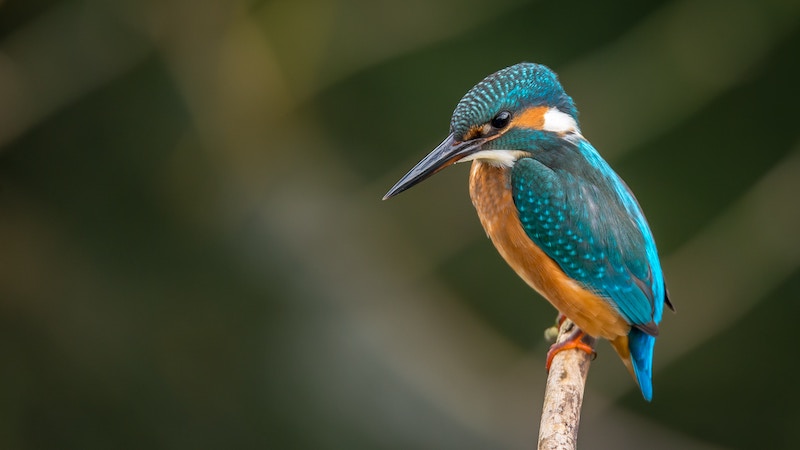Dealing with Boredom: Part II
Episode #7 of the course Understanding and dealing with boredom by Sonia Chauhan
The experience of feeling bored is a precarious process, kind of like you’re waiting for something, to feel something other than what you’re feeling when bored. So, we look for easy amusements.
When we distract ourselves, we simply assume that we are interested in the mode of distraction. On the other hand, when we don’t give in and choose to see a boring moment through, we build the internal potential to figure out what really interests our soul.
I began writing when I was utterly jobless, stuck at my parent’s home and nursing a mild quarter-life crisis. Looking back, it astonishes me that I never took an interest in writing during my school years.
Nurture your capacity for boredom; don’t destroy it with continuous distraction. Boredom is when your mind, in a state of free-flowing attention, gently lands on the makings of what your deepest desires are made of.
Today, I am going to suggest a spiritual technique to battle the constant quest for entertainment that not only leaves us deeply unsatisfied but also paints a much bleaker picture of boredom than it actually deserves.
Instilling the Art of Being Present
Being present, or practicing mindfulness, is an ancient concept prescribed by the Stoic philosophers and Zen Buddhism. It helps in your overall well-being, but I am suggesting it as a method to counter boredom.
Mindfulness, simply put, is a state of mind where you solely attend to the present moment without attaching your thoughts to any other moment in time. You don’t ruminate over your past and you don’t fret over your future. It sounds wonderfully guileless, but it is one of the toughest practices to master.
Let your mind wander, but always bring it back to the present moment.
Active Mindfulness
If you jot down what bores you the most, it’s probably similar to the findings of a recent survey where people ranked waiting in queues, being stuck in traffic, and being on hold as the most boring activities of their day. Boredom does not simply refer to boring rainy afternoons spent at home. It also engulfs us when we have things to do, except it’s those very things that bore us to death.
Mindfulness, then, comes in as a modern-day savior and gives us the forbearance to tackle boredom-riddled activities with grace. Instead of writhing in exasperation during a delayed flight, mindfulness teaches us to simply dig into the moment.
Mindfulness asks you to give your complete attention to the activity at hand and do it with care. Don’t shut out your brain while cooking dinner but indulge in chopping the vegetables perfectly and savor the smell of a sizzling pan. When you eat, experience the food without the disruption of YouTube or Netflix.
A mindful experience is as simple as observing the shifting colors of the bedcover you spread in the morning, discerning the shades of green while walking, or noticing every color, every waft of wind, every sound around you.
Passive Mindfulness
Many times, we force ourselves to be busy because we don’t want to face boredom and solitude. Sitting alone with your thoughts can be especially daunting if you indulge in negative self-talk or battle with anxiety. Unfortunately, “being perpetually and mindlessly busy” is even worse.
Facing the boring parts of your life is an act of courage, but it’s a worthy cause. So, how do you sit through a boring weekday evening? By practicing passive mindfulness.
Lie down, sit, or stand—just stay still. Now, start feeling every part of your body. Close your eyes, soften your jaw, relax your shoulders, wiggle your toes. Take deep breaths. Feel the breath flow inside your body, and then rush it out.
Here are a few tips to help you engage effectively with the present:
1. Deploy all your senses—hearing, sight, smell, touch, and taste.
2. Be 100% engaged on the task—whether you’re cleaning the house or simply focusing on your breath.
3. Observe everything from a factual perspective. Don’t bring in the part of your brain that delves on interpretive drivel.
4. This is the biggest tip: Do not multitask.
Mindfulness is a profound way of nudging yourself back to the present moment. It’s a state of being that helps us get reacquainted with reality—that everything that’s not unfolding right before us at this moment is nothing but a thought, memory, or idea.
In this way, mindfulness gives us the nerve to deal with loneliness and boredom. We begin to look at the monotony of our days not as something to be endured with agony, but simply to be experienced with patience.
Key Notes
“Be selective about your attention. At first glance, this may seem counterintuitive: After all, aren’t we trying to pay attention to more, not less? Yes, but the crucial distinction is between quantity and quality. We want to learn to pay attention better, to become superior observers, but we can’t hope to achieve this if we thoughtlessly pay attention to everything. That’s self-defeating. What we need to do is allocate our attention mindfully.” —Maria Konnikova, Mastermind
Observe a “no multitasking day” each week, where you focus on just one activity—the one you’re doing at the moment.
In tomorrow’s lesson, I will set out effective strategies to respond properly to boredom.
Recommended book
The Shallows: What the Internet Is Doing to Our Brains by Nicholas Carr
Share with friends

